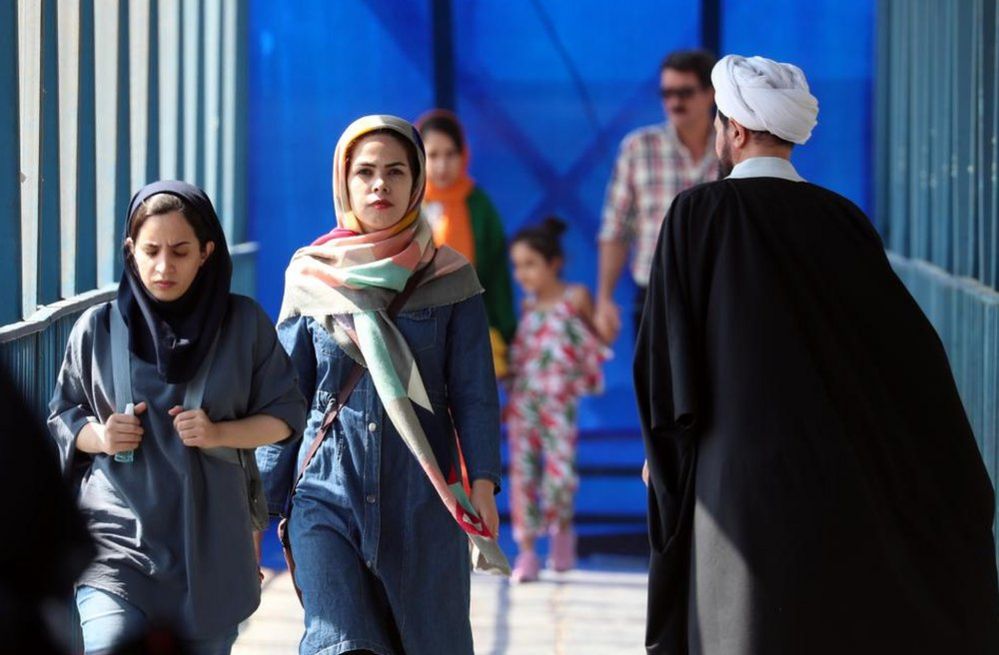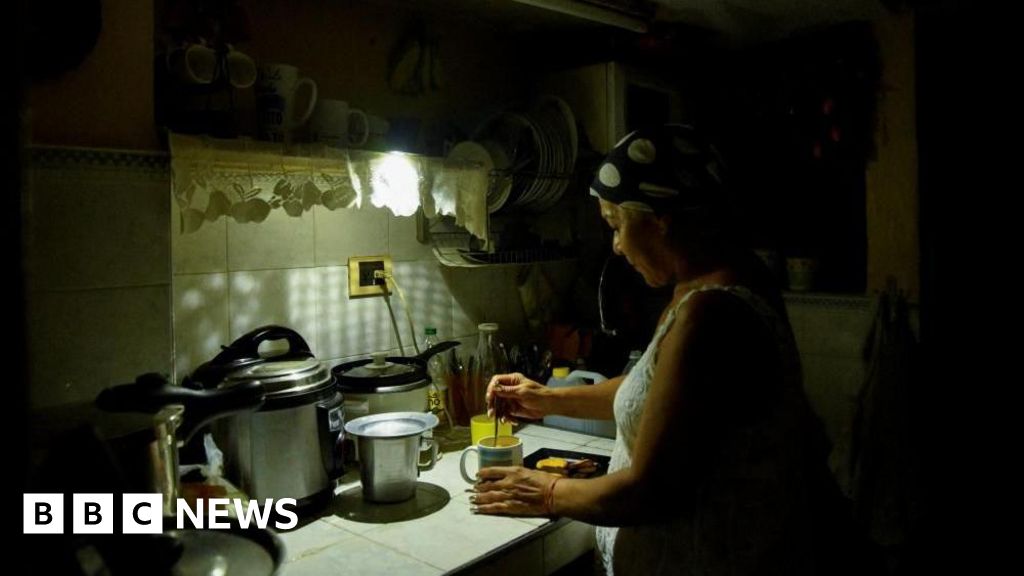ARTICLE AD BOX
 Image source, EPA
Image source, EPA
Iranian women walk past a cleric in a street, in Tehran, Iran, 19 September 2022.
Iranian authorities have begun installing cameras in public places to identify unveiled women, the police have announced.
Identified women will receive a text about the consequences of not covering their hair with a hijab, police said.
This would help prevent "resistance against the hijab law", police said.
Protests were sparked last year by the death in police custody of Mahsa Amini, a young Kurdish woman arrested for allegedly violating the hijab rule.
Since Ms Amini's death a growing number of women have been discarding their veils, particularly in larger cities, despite the risk of arrest.
Women have been legally required to cover their hair with a hijab (headscarf) since the 1979 Islamic Revolution installed a strict interpretation of religious law. Women who violate the law face fines or arrest.
Saturday's police statement described the veil as "one of the civilizational foundations of the Iranian nation" and urged business owners to uphold the rules through "diligent inspections".
Public attacks on unveiled women are not uncommon.
Last week, a video of a man throwing yoghurt at two unveiled women was widely disseminated online and the women were subsequently arrested under the hijab law. The man was also arrested.
Thousands of protesters in Iran have been arrested and four have been executed since December, but hardliners have continued to insist that more be done to enforce the law.
Last Saturday, Iranian President Ebrahim Raisi reiterated that Iranian women must wear the hijab as a "religious necessity".
Iran's judiciary chief Gholagholamhossein Mohseni-Ejei, however, warned on Friday that a widespread crackdown may not be the best way to encourage women to follow the rules.
"Cultural problems must be resolved by cultural means... If we want to solve such problems by arresting and imprisoning, the costs will increase and we will not see the desired effectiveness," he said.
The BBC has mapped how the death of Mahsa Amini sparked widespread unrest in Iran

 1 year ago
19
1 year ago
19








 English (US)
English (US)